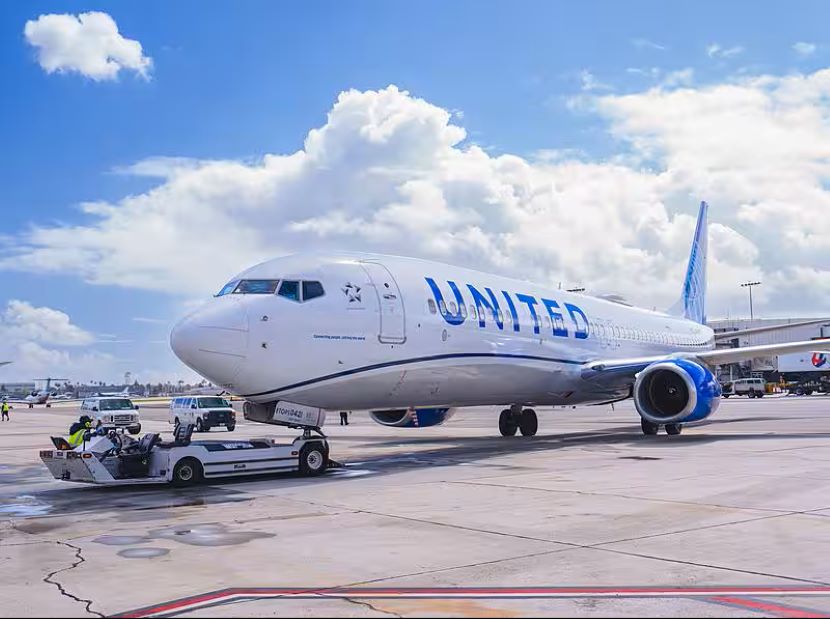Published on
October 19, 2025
United Airlines starting on 18th October and continuing on 19th October, 2025, experienced significant disruptions, with flight cancellations and delays affecting key global destinations. Airports in Newark, San Francisco, Chicago, New Orleans, Washington D.C., Denver, Joe Foss Field, Munich, Amsterdam, Lisbon, Cape Town and Dubai across the US, Germany, Netherlands, Portugal, South Africa, UAE saw severe operational impacts. According to FlightAware data, there’s a total of 12 cancellations with 402 delays reported, causing confusion and frustration for travelers. These cancellations span both domestic and international routes, impacting not only passengers but also tourism in affected countries. The suspensions of long-haul flights to and from major cities like Newark, Munich and Amsterdam have rippled through the travel industry, resulting in delays and rebookings. Passengers are now left to navigate this disruption as United Airlines works to manage the situation. As the airline deals with the aftermath, the full impact on affected countries and travelers remains uncertain.
A total of 12 United Airlines flights have been cancelled, impacting a broad spectrum of both domestic and international travel. Among the most notable cancellations are long-haul flights from Newark to Dubai, Munich to Newark and Amsterdam to both Newark and San Francisco. These cancellations, scheduled over multiple days, have left hundreds of passengers stranded or rebooked on alternative routes.
The affected flights include:
UAL3884 (B77W) from Newark Liberty International Airport (KEWR) to Dubai International Airport (DXB)UAL31 (B772) from Munich International Airport (MUC) to Newark Liberty International Airport (KEWR)UAL3917 (B772) from Amsterdam Schiphol Airport (AMS) to Newark Liberty International Airport (KEWR)UAL3928 (B772) from Amsterdam Schiphol Airport (AMS) to San Francisco International Airport (KSFO)UAL3908 (B772) from Newark Liberty International Airport (KEWR) to Chicago O’Hare International Airport (KORD)UAL1484 (B738) from Joe Foss Field (KFSD) to Chicago O’Hare International Airport (KORD)UAL3772 (B772) from Chicago O’Hare International Airport (KORD) to New Orleans International Airport (KMSY)UAL3045 (B78X) from Lisbon Airport (LIS) to Newark Liberty International Airport (KEWR)UAL3926 (A320) from San Francisco International Airport (KSFO) to Washington Dulles International Airport (KIAD)UAL2222 (B789) from Cape Town International Airport (CPT) to Newark Liberty International Airport (KEWR)UAL3914 (A320) from Denver International Airport (KDEN) to Washington Dulles International Airport (KIAD)UAL163 (B77W) from Dubai International Airport (DXB) to Newark Liberty International Airport (KEWR)
The cancellations cover a wide array of routes, linking key global cities with major US airports. These include transatlantic routes, such as from Amsterdam and Munich to Newark, as well as flights connecting other global hubs like Cape Town, Lisbon and Dubai to major US destinations. Domestic flights from Chicago to New Orleans and between San Francisco and Washington D.C. were also impacted.
These cancellations primarily affect travelers departing from major international gateways, with several destinations in Europe, the Middle East and Africa experiencing delays or cancellations due to United Airlines’ operational challenges. While the precise reasons for these disruptions have not been specified in the provided details, such a large-scale impact suggests underlying operational issues.
Delays
In addition to the flight cancellations, United Airlines reported a significant number of delays. A total of 402 delays were recorded, with the percentage of delayed flights standing at 14%. These delays, while not affecting specific flights in the provided list of cancellations, nonetheless add to the overall travel disruption experienced by passengers. The delays, coupled with the cancellations, create challenges for travelers, especially those on tight schedules or connecting flights.
Several major international and domestic airports are affected by these disruptions. Among the most notable are:
These airports, crucial to both domestic and international travel, have seen significant disruptions, which have impacted travel plans for passengers. Airlines like United Airlines depend heavily on these airports for both international connections and domestic flights.
Tourism is likely to be indirectly impacted in several countries affected by the United Airlines cancellations. Destinations such as Cape Town, Dubai and Amsterdam are popular tourist spots with travelers regularly flying in and out of these cities. The cancellations may result in fewer tourists arriving or departing, potentially affecting local businesses, hotels and tourism-related activities. In the United States, airports like Newark and San Francisco are major hubs for both business and leisure travelers, with cancellations possibly reducing the number of inbound and outbound tourists.
In countries like Germany and Portugal, where international connectivity is vital for the tourism sector, the flight disruptions may discourage travelers from planning visits or disrupt ongoing travel itineraries. While the full extent of the tourism impact remains unclear, it is likely that the ripple effect of these cancellations and delays will create short-term economic setbacks.
For passengers whose flights have been cancelled, the first step is to check for rebooking options. United Airlines typically offers rebooking or refund options for canceled flights and passengers are encouraged to visit the airline’s website or contact customer service for assistance. In many cases, the airline will arrange for passengers to be booked on alternative flights as soon as possible.
Passengers who have experienced significant delays are advised to monitor their flight status regularly for updates on any changes. It may also be beneficial to reach out to United Airlines directly to inquire about compensation or meal vouchers if delays extend beyond a certain threshold.
For those affected by cancellations in international locations, reaching out to local United Airlines offices or contacting the airline’s global support services may help facilitate smoother rebooking or compensation processes.
In conclusion, the widespread cancellations and delays by United Airlines have left many passengers in a state of uncertainty. With a variety of international and domestic flights affected, travelers must stay informed and work with the airline to find the best possible resolutions. While the disruptions have impacted numerous routes and airports, passengers should remain proactive and prepared for any changes to their travel plans.
